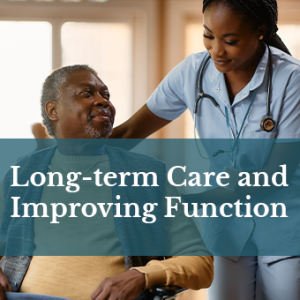Presenter(s):
Stefania Ilinca, WHO Regional Office for Europe, Denmark
Abstract
Background:
The demographic shift toward an ageing population across Europe and globally has intensified the need for comprehensive, person-centred long-term care (LTC) systems. Many countries face challenges in delivering equitable, high-quality, and sustainable care services. In response, the World Health Organization (WHO) Regional Office for Europe, in collaboration with the European Commission, has launched the “State of Long-Term Care (State of LTC) Toolkit” to support systemic reforms and promote continuous learning in LTC.
Objectives:
The State of LTC Toolkit aims to empower countries—regardless of their level of economic development—to assess, monitor, and transform their LTC systems. The Toolkit seeks to link investments in care services with tangible impacts at both individual and societal levels, fostering reforms that are responsive to people’s needs and aligned with universal health coverage and social cohesion goals.
Methods:
The Toolkit provides a comprehensive conceptual framework grounded in participatory governance. It is structured around a results-chain model encompassing five interconnected components: population needs, system inputs, outputs, outcomes, and population-level impact. It includes a data-collection template and an implementation guide, supporting both qualitative and quantitative evidence gathering. Importantly, it promotes inclusive stakeholder engagement throughout the assessment process, ensuring that insights from care users, providers, policy-makers, and civil society shape reform priorities.
Results:
The Toolkit facilitates evidence-informed policy-making by offering a structured methodology for assessing LTC systems. It focuses on improving system-level outcomes such as access, affordability, equity, resilience, and cost-effectiveness. By incorporating both formal and informal care dynamics, and promoting age-friendly, caring communities, it encourages countries to shift from fragmented service delivery to integrated, person-centred models. Pilot applications of the Toolkit in multiple European countries have demonstrated its utility in identifying reform priorities, engaging stakeholders in constructive dialogue, and highlighting critical data and resource gaps.
Discussion:
The State of LTC Toolkit represents a shift from static evaluation to dynamic, collaborative system transformation. Its adaptability allows for context-specific implementation, making it suitable for countries at various stages of LTC system development. The Toolkit aligns with major international frameworks including the European Care Strategy, the UN Decade of Healthy Ageing, and the Sustainable Development Goals, reinforcing its relevance as a global resource for guiding LTC reform. Furthermore, by enabling evidence-based and participatory reform processes, the application of the State of LTC toolkit can significantly contribute to building resilient, equitable, and high-performing LTC systems that uphold the dignity and autonomy of ageing populations.
Bio(s):
Dr. Stefania Ilinca is Technical Officer for long-term care with the WHO Regional Office for Europe, a Senior Atlantic Fellow for Equity in Brain Health and a Salzburg Global Seminar fellow. She has extensive experience working at the interface between policy and research, dividing her time between policy advice, technical support, applied research and advocacy efforts. At WHO Europe, her portfolio covers the transformation of long-term care eco-systems, informed by equity, sustainability and demographic change concerns, with particular attention to strengthening care delivery for people with complex needs, supporting integrated care models, promoting quality in long-term care delivery and leveraging digital and social innovations.

